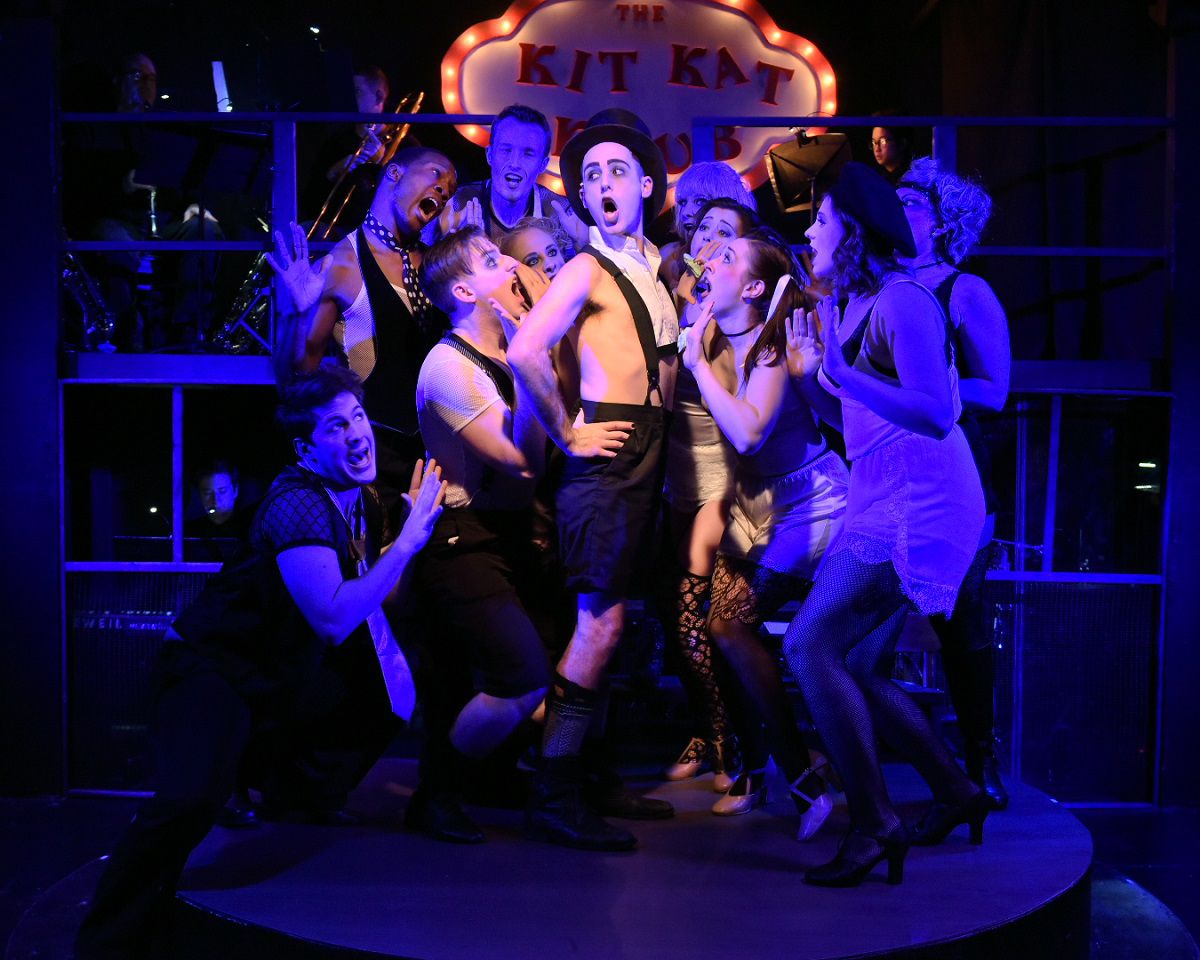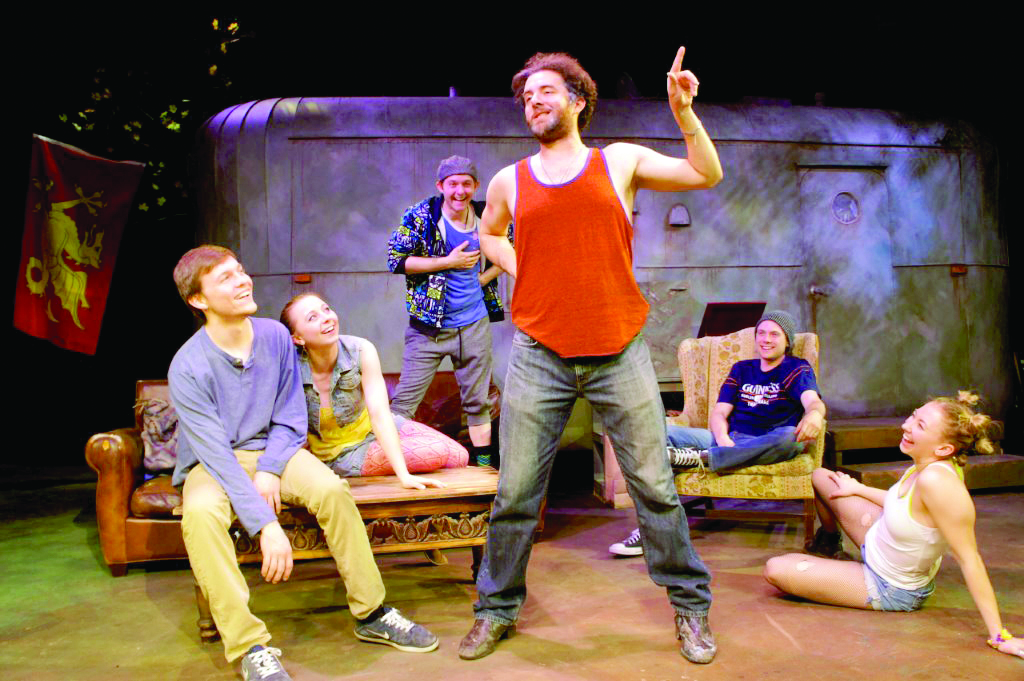Dobama’s ‘The Mystery of Love & Sex’ found wanting
By Bob Abelman
Black/white. Jewish/Christian. Gay/straight. Single/divorced. Yankee/southerner. Daughter/son.
These ties that divide are the stuff of Bathsheba Doran’s comedy/drama “The Mystery of Love & Sex,” which received its world premiere production at Lincoln Center in 2015 and serves as Dobama Theatre’s season opener under Shannon Sindelar’s direction.
The play revolves around two lifelong best friends whose love and sex lives are being re-evaluated now that they are 21 years old and contemplating the future. Complicating matters is the reality that Charlotte is white, Jewish and may be gay, while Jonny is black, Baptist and a virgin.
Add to the equation Charlotte’s parents – Howard, an author of detective fiction and an aggressive, self-centered New Yorker, and Lucinda, a Southern belle and lapsed Catholic – whose conflicting world views, clashing parenting styles and troubled marriage complicate matters even further.
This is familiar familial territory for Doran, whose modern-day dramedy “Kin” – which played at Dobama in 2014 – similarly explored the intimate relationships of its characters in order to unlock the mystery of who they really are. The playwright is fond of reminding us that we all have emotional baggage and is skilled at revealing, through clever dialogue and rich characters, their interesting points of origin.
But while “Kin,” also directed by Sindelar, accomplished this by employing 20 short, fast-moving and mostly two-person scenes, “Mystery of Love & Sex’s” four-person cast labors harder, in half as many scenes, and is less successful.
The reason is that each actor seems to be performing in a fundamentally different play rather than finding what it takes to blend into this one.
As Charlotte’s obnoxiously controlling dad, the wonderful Scott Miller appears to have pulled his character from something written by Neil Simon and produced by Mel Brooks. His comparatively broad emotional and physical overreactions – while very funny and quite endearing to this expatriate New Yorker – would be more so if they better complemented the character choices and acting styles of the others who share the stage.
Heather Anderson Boll as the sardonic Southern-bred mother, for instance, is busy performing in a Tennessee Williams’ play. She is wonderful in it but the dramatic edge and self-aware introspection she offers seem out of place here, particularly since the playwright gives Lucinda the most comedic one-liners and the responsibility of articulating her rather mystical outlook on life’s mysteries.
And Wesley Allen, as Charlotte’s childhood neighbor and earnest best friend, has yet to find his play. He is searching – for defining character traits, for vocal inflection, for his lines – for much of the production. Jonny’s intimate relationship with Charlotte, his tender relationship with Lucinda and his complicated relationship with Howard are undermined as a result.
Only Tess Burgler as the troubled Charlotte finds the authenticity desired by the playwright and written into the very fabric of the script, which calls attention to just how much she stands alone in this regard.
Each scene – which, collectively, span five years in the lives of these characters and unfold in designer Jill Davis and Marcus Dana’s sparingly built and beautifully lit dorm room, family living room set and backyard – is detailed and unhurried. Only Burgler finds the right tempo while Miller rushes, Boll meditates and Allen meanders. And she appears to be working too hard to lead her cast mates to that elusive common ground.
Not working hard enough is sound designer Cyrus O. Taylor, whose musical segues between scenes enter and end abruptly for no clear reason.
There are certainly moments in this production where everything clicks. When the tense and rhythmically-challenged Charlotte tries to unwind and dance with the similarly hampered Jonny, the result is absolutely charming. So are the two isolated incidencts of nudity, the first intended for and achieving dramatic effect and the second bravely and very effectively going for the laugh.
There are beautifully tender moments as well, between Howard and Lucinda when he delivers a wedding dress for Charlotte and between mother and daughter throughout the production.
There’s also a sweet 11th-hour cameo appearance by long-time character actor Donald Krosin as Howard’s father.
But one of the mysteries of “The Mystery of Love & Sex” should not be why this Dobama production does not have more moments like these.
On Stage
WHAT: “The Mystery of Love & Sex”
WHERE: Dobama Theatre, 2340 Lee Rd., Cleveland Hts.
WHEN: Through Oct. 2
TICKETS & INFO: $10 – $32. Call 216-932-3396 or visit dobama.org.
Bob Abelman covers theater and cultural arts for the Cleveland Jewish News. Follow him at facebook.com/BobAbelman3.
Originally published in the Cleveland Jewish News on Sept. 4, 2016.
Lead image: Heather Anderson Boll (Lucinda), from left, Scott Miller (Howard), Tess Burgler (Charlotte), and Wesley Allen (Jonny). Photo | Steve Wagner Photography











